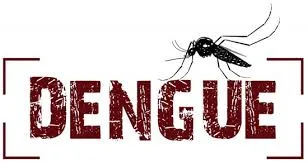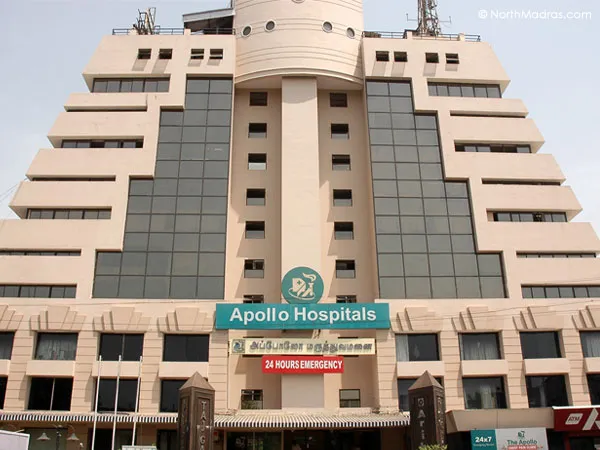My dear Steemit friends,
Dengue is a terrible disease and mortal which is passed down through mosquitoes. This is a story of my friend Henry's death match with this famous Fever. It happened during our last few days of traveling in Sri Lanka, and I must say, it was a terrible experience full of horror and hope.
It wasn’t until we were half way through our eleven hour train ride, from Jaffna back to our home in Galle that I realized Henry was gravely ill. We had been on a three day trip to the northern Sri Lankan city and for most of it Henry had been laid up in bed. I had always felt that his illness would pass; that it was just some East-Asian food-poisoning. But seeing him face down on his tray table, drifting in and out of consciousness, his face gaunt and pallid, a disturbing thought came to my mind: “Is Henry dying?”
Arriving back in Galle, Henry and I immediately went to the local private hospital. In his state the general hospital wasn’t an option. We waited three hours for blood tests and when the doctor finally arrived, she took me aside and said, “It’s dengue. Full blown. Stage four.” “How many stages are there?” I asked. “Five.” She said, “His blood is leaking fluid into his lungs and stomach. We don’t normally see such advanced dengue in tourists. He must be on day four or five by now.” “And stage five?” I asked again. “The last stage is shock.” She said, “If he falls into shock, well, it’s not good.” Henry was lying on his bed with his back to us, and I wasn’t sure if he had heard the diagnosis. I asked the doctor to repeat what she had just said. Henry remained motionless; he had heard the first time.
Henry and I had of course considered that his illness might be dengue fever, but never seriously. Despite his complaints of fever, headaches, stomach cramps and joint pains, neither of us put two and two together. But now, completely exhausted, lying on a gurney, and being wheeled away towards a night of scans, blood tests, and the harsh reality that he was very ill, Henry had only one thing to say: “f**k!”

Henry had originally joined the project as my second-in-command. He was a Master’s student with extensive travel experience and a willingness to throw himself headfirst into challenges. I knew he would be perfect for the project and brought him on without a second thought. I also knew that he was aware of the risks. It goes without saying that when travelling in the developing world, you must be careful. All of my previous projects had at least one incident that stuck with me, but most of them were self-induced. In Henry’s case, however, it was just bad luck. The infected mosquito that had decided to bite him could just as easily have bitten me or someone else. At this point, however, as I watched him disappear down a sterile neon-lit hospital corridor, all I could do was cross my fingers.
Henry was taken straight to the ICU or the Intensive Care Unit. Over the next few hours doctors came and went, each one giving a slight variation of the original prognosis, ranging from: “He’s stable now. He’s in the right place. Don’t worry.” To, “It is not uncommon for people in Henry’s condition to die.” I appreciated the doctors’ honesty and continued nodding to their words, but inside I felt completely unprepared. But even as I watched nurses tend to him, poking him with needles while muttering to each other worriedly in Sinhalese, I knew he would be OK. Henry’s a survivor I said to myself. He’s a strong twenty-something after all. There are many stories of travellers getting bitten by all manner of nasty little creatures and surviving. This will be something for his memoirs I thought: Chapter Twelve: “My Date with Dengue.” How we’ll laugh about this over a pint back in our miserable frozen Europe. But not yet. All that would have to wait.
The nurses had finished with the needles and the tests. Now Henry just lay there, pale and dejected. I really felt for the guy but I had to accept there was nothing more that could be done. All the nurses could offer him was proper rest and regular hydration: 60ml of water per hour and not a drop more. One of the doctors explained to me the importance of maintaining a fine balance between water lost from the blood and water gained from the IV. Too much either way could be dangerous. This balance had taken many years and many fatalities to perfect. And despite Henry’s bleak situation I knew he was in good hands.

I came to see Henry each day he remained in the ICU. Usually in the morning then in the early afternoon, then again in the evening before he fell asleep. I timed my visits with his blood test results and soon the nurses began to expect me. In an effort to understand what was happening to Henry, and more importantly what had to happen in order to get him out of this place, I asked the doctors what we were looking for. The female doctor on watch that day took pity on me. “The most important sign of improvement is in the blood platelet count.” She said in her pleasing Sri Lankan accent. “Once we see a jump in the platelets, then we know he’s on the mend. But it may take some time.” She continued, “In a healthy person, platelets number between 250,000 and 350,000 per microliter of blood. When Henry arrived, his platelets were very low, only 17,000. We must prevent them from dropping.” She said. “Anything below 9,000 is where the patient is likely to fall into shock.”
Using my new found medical knowledge, every day I would go through Henry’s blood charts searching for the all-important platelet count. The nurses would giggle to themselves as I flicked through the charts like some wannabe doctor looking for any signs of improvement. It was clear, however, that in Henry’s condition, it would take some time before we would see any real change. – The next couple of days were an unpredictable series of ups and downs. The day after he had been admitted his platelet count went from 17,000 to 19,000, a good sign we all thought. Then a few hours later it dropped to 14,000. Then, the next morning it came back up to 16,000, then 18,000 and stayed there for a while before dropping again to 15,000. It was driving me mad and I had to get out of the hospital. I decided to go and speak to the boss: our NGO director, Janaka de Silva.
Janaka de Silva – businessman and philanthropist – had somehow heard about Henry’s predicament before I’d told him, and had immediately began making phone calls to all those he knew with Dengue medical experience. By the time I arrived back at the NGO, Janaka had acquired a small brown bottle of what I rudely referred to as “jungle juice,” for me to deliver to the patient. He said his Ivey League doctor friend had made the concoction just for Henry. Seeing the look on my face, Janaka threw an affectionate arm around my neck and said, “Don’t worry Robert. It will do the trick!”
Package in hand I jumped in the nearest tuk-tuk and headed straight for the hospital. I went up the stairs, into the ICU and placed the miracle cure before the ever-present nurses. All I got was raised eyebrows as they cautiously twisted off the cap and gave the contents a sniff. When the doctor came in and saw the bottle, she immediately burst into fits of laughter. This went on for some time. When she was finally able to compose herself, she explained to me about Western medicine and clinical trials and how, “in Henry’s condition we can’t possibly give him anything that might disrupt the delicate balance we’re trying to maintain.” It was decided that only if Henry got significantly worse would we introduce these unofficial methods. Despite my protests, Henry agreed.
I left the ICU disappointed and took a walk around the hospital. – After having been in Sri Lanka for over three weeks by now, the constant stares from locals had become normal. But in the hospital the stares were different. Everybody knew there was a white guy in the ICU with dengue. And when they saw a second white guy coming into the hospital every day with a concerned look on his face, I had a feeling they knew why I was there. The people I met during my time in the hospital were a big part of why I always had hope for Henry. Often family members of other patients, they would come and sit with me, asking about Henry, then sharing their own stories of friends or family who had battled with dengue. Their stories always ended well.

I returned to the hospital the next day: day four. Thankfully it was clear that Janaka’s alternative remedies had not been necessary; and finally the jump in platelets we had all been hoping for had happened. From 18,000 they had sprung to 35,000. Henry’s mood had noticeably improved as well. We talked for the longest since the whole saga began and he even managed to crack a few jokes with his dry Austrian wit. I remember thinking there’s is no sign like the mood of a patient to show what’s really going on inside.
Day five showed Henry’s platelet count on a steady rise, from 48,000 to 90,000 and up and up it went. It was on day six, at long last, that the nurses told us he could be transferred out of the ICU and into his own room. Before we moved him, the nurses asked me if he wanted a normal or luxury room. In Sri Lanka this could only mean one thing. I looked over at Henry sitting up in his bed. “Luxury has air conditioning.” I said. “Let’s go for the luxury.” He said with a smirk. “The insurance company’s paying for it.” It was a good decision.
Before Henry was finally discharged on day eight and headed for a beautiful villa in Galle’s colonial quarter to stay with his sister, who had just arrived from Vienna, I was asked to stay with him in his luxury hospital room overnight. It might seem unusual but once the ICU had released him, the hospital requested that a family member or guardian stay with him night and day until he was fit to leave the hospital. It seemed like a strange request, but it was what it was, so I packed a bag and bunked up with the now vocal and slightly pissed off Henry. He was of course very thankful for the upturn in his health, but more than anything, he was desperate to get out of the hospital.
One night with him and I quickly understood why. Bear in mind he had been in the hospital for a week by now; not allowed to get out of his bed and surrounded by people who couldn’t speak his language, poking him with needles and waking him up at all hours of the night to poke him some more. Not to mention the dreaded catheter which, much to Henry’s joy, had finally been removed. (He later described the experience as a tug of war match between his bladder, the nurses, and everything in-between).
Throughout the night I spent with Henry, a parade of nurses, with all manner of medical contraptions, would enter the room every 45 minutes, throwing on all of the lights, blinding us out of our sleep. Some were seasoned nurses who had seen it all, and were in no mood for Henry, while others were giggly trainees who found this giant white man and his friend absolutely hilarious.
To add to this circus was the ever-present Sri Lankan mosquito. It had been one of these evil little creatures that had put Henry in this place to begin with and it was now, with well-trained eyes, that we both realised his new room was full of them. This is important because Henry had dengue, and if one of these mosquitos had decided to bite him and then bite me, I get dengue. Plus Henry had developed an understandable aversion to the creature by this point, and it was with great pleasure that I assumed the role of Mosquito Destroyer.
And so it began. Henry would spot and I would destroy. We may as well have been duck hunting. “There!” He would shout, “Above you!” Swinging around I would catch the clumsy insect in my sights and neutralise the threat. Each splat seemed like a victory for all dengue patients the world over. “Good shot!” said one of the doctors as he saw me obliterate one above Henry’s head. I was starting to enjoy myself, probably a little too much, and within no time the room was cleansed. Ten minutes later, however, when the army of nurses re-entered, they left the door to the corridor wide open, letting in every blood-thirsty creature waiting outside. And so it went, all, night, long. I think it was around 4am when I finally gave up the hunt. Henry was passed out and within a minute so was I, on my first and last night in Ruhunu hospital.
So I guess that’s it. The ending is a happy one – Henry lived to tell the tale! Within no time he was lounging at his sister’s colonial villa, out by the pool in a sarong, chain-smoking and stuffing his face with shrimp. The smile he greeted me with said only one thing: freedom! It was a massive relief to see him up and about. I had always suspected he would be fine, but there was a moment, somewhere in the beginning, when he was first taken to the ICU, that I was genuinely terrified for him. He gave everyone on the project a real scare, but all that’s in the past now. Ironically enough, I think of the all the project participants, Henry had the most trans-formative experience in Sri Lanka. Plus he looks about 5 years younger, so it’s not all bad. I only hope that Henry continues to explore the world open-minded and doesn't let this bump in the road change his direction. But like I said, Henry’s a survivor, he’s a strong twenty-something after all. This will just be something for his memoirs: Chapter Twelve: My Date with Dengue.
Thank you, hope you enjoyed
Chris :)